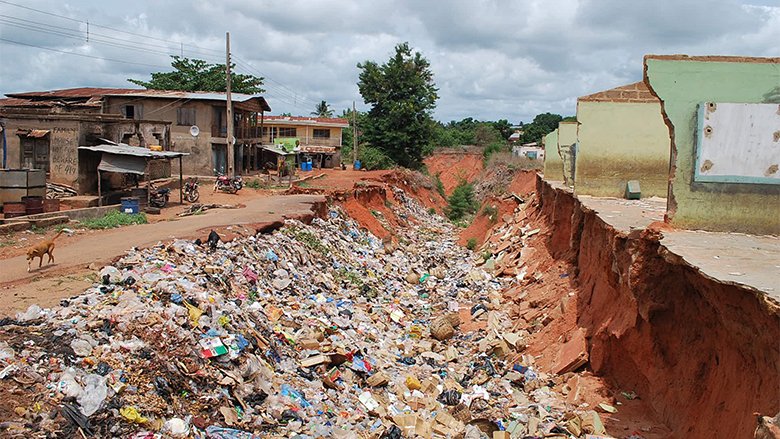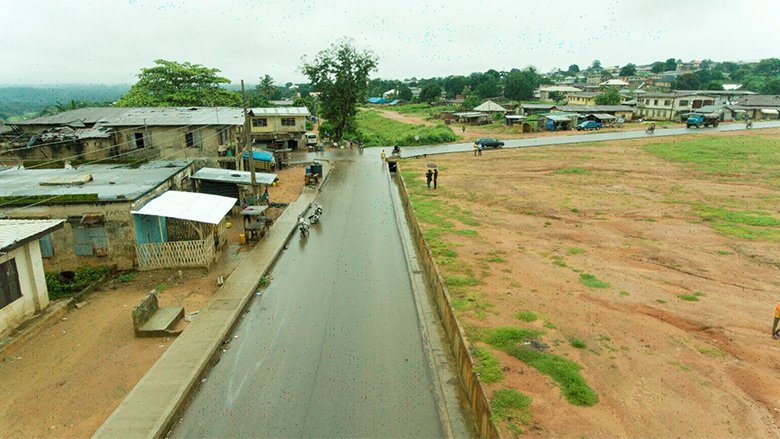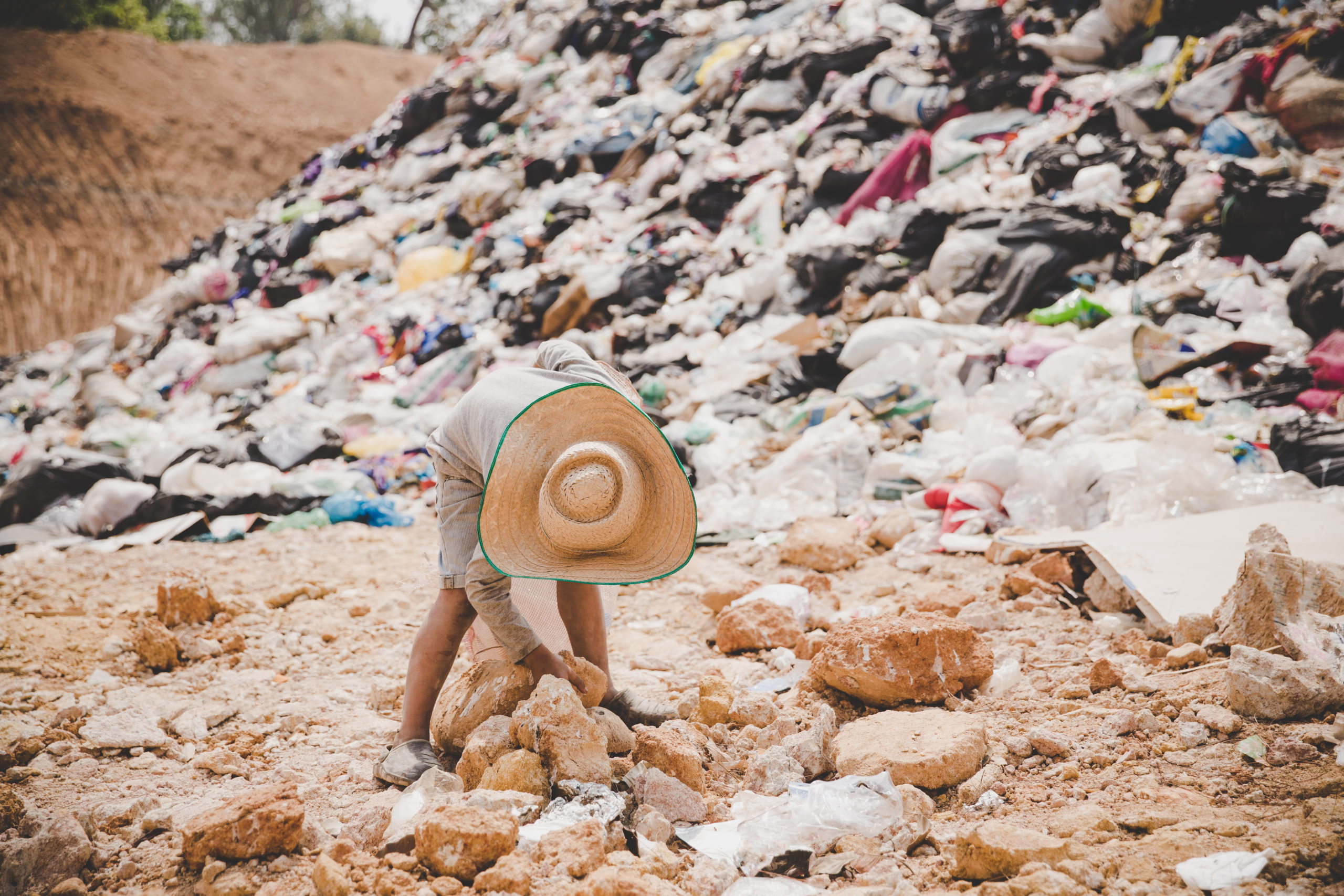STORY HIGHLIGHTS
- More than 12 million people benefited from the $900 million Nigeria Erosion and Watershed Project (NEWMAP) that reinforced the country’s ability to fight climate induced erosion, natural hazards, and disasters.
- 52,000 jobs in the sectors promoting climate adaptation – direct and indirect – were created through the first Sovereign Green Bonds.
- 23 states adopted innovative integrated approaches for adaptive development based on community participation.
Increasing climate variability in Nigeria is causing more intense and untimely rainfall. Adding to land degradation, flash floods, landslides, and gully erosion have worsened across one of the ten most vulnerable countries to climate change impacts. By 2009, an estimated 6,000 gullies were destroying roads, highways, pipelines, and houses across rural and urban Nigeria. Many Nigerians lived in fear and despair due to these extreme weather events.
Tackling Soil Erosion
In Calabar, in Southern Nigeria, Nkese Oyo-Ita, a 75-year-old grandmother, recalls, “Whenever it rained, all the boys would come out with shovels and cutlass to clear the street and create gutters. But that was not enough to solve the problem… We lived in extreme fear of being drowned or washed away with our belongings.”
Sudden, unpredictable, and uncontrollable floods erode the soil, and the loss of life and property is a nightmare for many Nigerians. “It destroys crops, farms, lands and houses. We used to have a cocoa plantation, but the erosion swept it away,” said Michael Igboria, of Edo State in Southern Nigeria.


Strengthening Nigeria’s Defences against Climate Change
In response to the situation, the Nigeria Erosion and Water Shed Management Project (NEWMAP), launched in 2012, adopted innovative integrated approaches based on community participation. The project, completed in 2022, linked poverty alleviation with sustainable ecosystems and better disaster-risk prevention. This holistic approach has improved the lives and safety of more than 12 million people in 23 states in Nigeria.
“When the road and gully had not been done, my husband used to put sands on parts of the road damaged by flood erosion. Now he no longer has to do this. The work done by the project in our community is very good, and residents are very happy because they no longer fear flood and gully erosion,” says Roseline Okhale, of the Ibore Community in Edo State.
NEWMAP initiated mechanisms to protect Nigerians from future climate change impacts. The project focused on the restoration of 90 gully sites and the construction of close to 60 catchments to control erosion. Warning systems were implemented, and 103 automated weather and flood early-warning systems provide data for catchment planning, rainfall prediction, and flood monitoring for five River Basin Development Authorities. Stormwater diversion plans were developed to stop gully formation, manage flood risks in urban areas, and adapt to higher rainfall. Solid waste management was improved to decrease flooding during heavy rains.
“For us, NEWMAP means ‘gully must go’. Many years ago, you could not stand here. This place was a deadly jungle. But as you can see, we are here, and cars are passing through this place,” says evangelist Jeremiah Asuka, of Njang Asang in Cross River State.
To help farmers cope with droughts, climate-smart agricultural innovations to conserve water such as solar-powered drip irrigation and rainwater harvesting have been rolled out.
Enhancing climate finance with green bonds for adaptation and mitigation
To help the Government of Nigeria finance ‘green investments’ in agriculture, energy, water, and transport, green Bonds were issued – a premiere in Africa. The bonds raised $30 million in 2017 and $41 million in 2019.
The NEWMAP supported initiatives helped decrease greenhouse gas emissions. Afforestation and innovative technologies, such as fuel-efficient cookstoves, solar-powered Primary Health Centres, borehole pumps, meat-dryers, and agro-processing plants, were introduced to reduce greenhouse gas emissions, deforestation,and dependence on fossil fuels and fuel wood.
Climate-focused policy research and initiatives include anLPG Framework to reduce dependence on wood and kerosene, feasibility studies of grid-connected solar power plants, and a transportation system running on natural gas, as well as digital Environment Impact Assessments.
In addition, 185,000 local government officials and community members were trained in environmental management to boost their knowledge of land degradation, soil and water conservation, catchment management planning, sustainable farming, and waste management.
NEWMAP’s successful demonstrations are bound to inspire others seeking comprehensive, people-centered strategies to tackle soil erosion while preparing for climate change adaptation and GHG mitigation.

Comments are closed